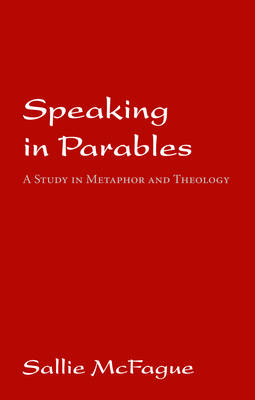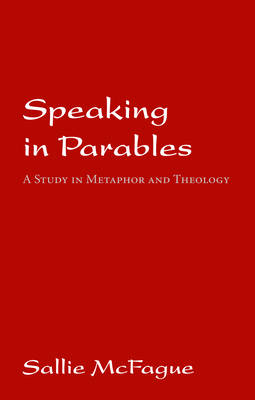
- Retrait gratuit dans votre magasin Club
- 7.000.000 titres dans notre catalogue
- Payer en toute sécurité
- Toujours un magasin près de chez vous
- Retrait gratuit dans votre magasin Club
- 7.000.0000 titres dans notre catalogue
- Payer en toute sécurité
- Toujours un magasin près de chez vous
Description
"This book is not only absorbingly readable but important. For its themes engage effectively with main dilemmas not only of formal theology but of current piety and witness."
- Amos N. Wilder, Andover Newton Quarterly
"This book is immensely valuable for its persuasive illustrations of the parabolic and metaphoric imagination. McFague attends both to the interpretive and the evaluative levels of hermeneutics. Her readings of specific parables, poems, stories, and autobiographies are insightful and relevant to her thesis that what religious language 'says' is 'conceptually imperceivable and inexpressible.'"
- Mary Gerhart, Journal of the American Academy of Religion
"It is at the very least a fine guide to one important direction that theological hermeneutics might take, and more than that, it testifies confidently to the presence of still unplumbed resources of the biblical word and its secular counterpart that are there for the imagination's appropriation."
- Robert Detweiler, Religious Studies Review
"Everyone interested in theology will be stimulated by Sallie McFague's mediating theological position and the form of thinking and discourse she espouses. Those interested in the intercourse between theology and literature will be stimulated by the way she links the two and the perceptive way she handles her literary examples. Biblical scholars will undoubtedly note her primacy of the parables as the central corpus of the biblical records. Preachers of the church will be strengthened by the concern McFague has for the Christian community and the importance of the word through the words of the preachers. With this variety of concerns, Speaking in Parables will have a deservedly wide reading and, perhaps even more important, wide discussion."
- Ronald E. Sleeth, Perkins School of Theology Journal
Spécifications
Parties prenantes
- Auteur(s) :
- Editeur:
Contenu
- Nombre de pages :
- 196
- Langue:
- Anglais
Caractéristiques
- EAN:
- 9780800610975
- Date de parution :
- 01-01-76
- Format:
- Livre broché
- Format numérique:
- Trade paperback (VS)
- Dimensions :
- 144 mm x 216 mm
- Poids :
- 267 g

Les avis
Nous publions uniquement les avis qui respectent les conditions requises. Consultez nos conditions pour les avis.






